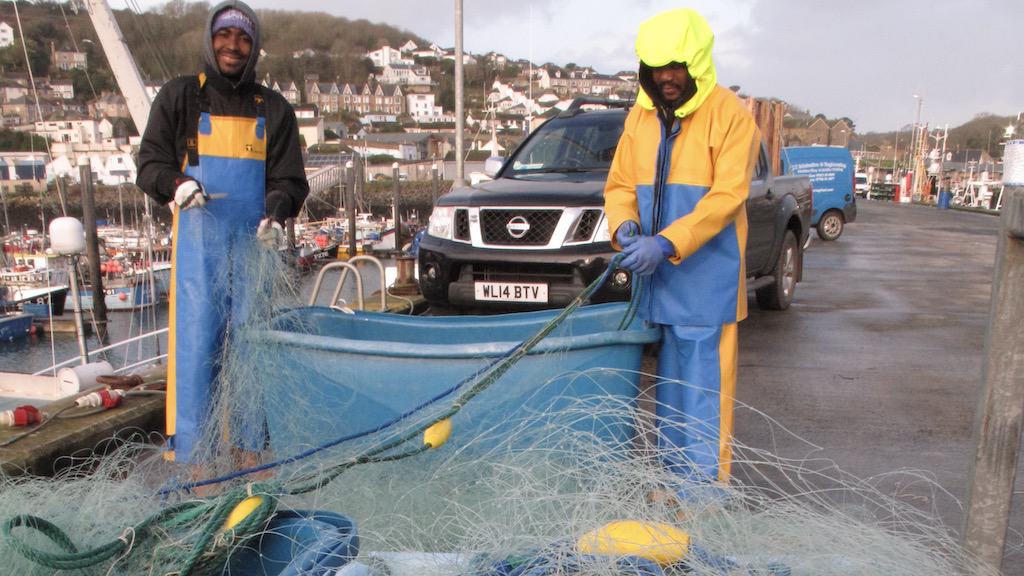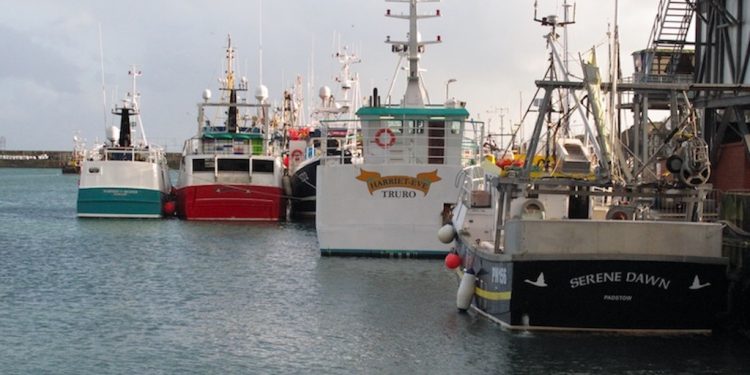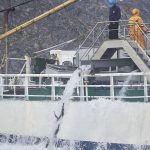The government of the United Kingdom has failed to prepare adequately for its own changes to visa rules, and now underpaid migrant fishers will be forced to pay the price for the government’s delays and incompetence, states ITF Fisheries Section expert Chris Williams.
The change, announced by Home Secretary Suella Braverman, tightens up regulations around recruiting and employing fishers from overseas. It makes it illegal for fishing vessel operators to use the Seafarers’ Transit Visa in UK territorial waters.
Previously, UK fishing vessel owners had exploited the Transit Visa, which is intended for seafarers joining international ships departing UK waters within 48 hours.

According the ITF, this meant that, for more than a decade, owners have been getting away with paying foreign crew just a third of the UK national minimum wage, by claiming that the workers weren’t working in the UK. This was despite crew often working, and living, on vessels based in UK fishing ports.
The move to close this visa loophole comes after years of campaigning by unions, maritime charities, and academics.
Last year, investigations by ITF, the Seafarers’ Charity, the Merchant Navy Welfare Board, the Fishermen’s Mission, and Stella Maris exposed just how widespread labour exploitation had become in the industry.
Foreign crew reported experiencing racist abuse and were routinely made to work longer hours than they were contracted for. Researchers identified a chain of exploitation, starting with the lack of clarity caused by the Transit Visa loophole.
Shifting the blame
But poor planning and a lack of notice means a change could be bad news for the workers it was intended to help.
Home Secretary Suella Braverman MP gave affected fishers and employers less than 24 hours to prepare for a crackdown by Border Force officials who will be enforcing the government’s newly clarified rules.
In a letter to campaigners, Braverman revealed that from 12th April, Border Force would fine vessel owners £20,000 for every fisher found to be illegally employed in UK territorial waters. But this warning came without an implementation plan, or even basic guidance to employers and fishers about what they needed to do to avoid fines and deportation.

The ITF had been visiting ports in England, Scotland and Northern Ireland to issue fishers with guidance on what they needed to do to avoid deportation, and how they could apply through the new, legitimate Skilled Worker Visa pathway. The leaflets have been translated into twelve different languages.
In most cases, employers would send crew home immediately to avoid any repercussions with Border Force. Those caught breaking the law risked exposing workers to adverse action from officials.
‘Right now, there are as many as two thousand non-EEA fishers in the UK, employed by UK companies on UK flagged vessels, but entering the UK via the transit visa. Many will be forced to leave the UK and may be unable to return due to the English language test requirements for the correct work permit,’ said ITF’s fisheries expert and campaign lead for the UK, Chris Williams.
‘These are people who signed contracts and came here in good faith, worked hard for the industry; only to wake up one day to find their immigration status illegal, when it wasn’t clear the day before or when they were employed. It’s quite incredible that this Conservative government expects these fishers to pack their bags overnight and presumably leave this country empty handed – without even the wages owed to them for the remainder of their contracts.’
Chris Williams said that it wasn’t too late for industry and the UK government to take steps now to ensure workers weren’t punished during the transition an above-board skilled worker visa system.
One provision that could make a real difference, he said, was to allow crew currently working in the UK to apply for their new Skilled Worker Visa from within the country, rather than being made to stop working and go home to apply.
This would allow crews to continue working and earning for their families while they await a Home Office decision. Applying from within the UK is allowed for other applicants already here. He stated it made sense to secure supply chains and avoid disruption for a domestic fishing industry clearly dependent on non-EEA labour.
‘We have to remember that migrant fishers from Ghana, the Philippines, India, Sri Lanka and Indonesia, have formed the backbone of the UK fishing industry during a period when the sector chose not to hire locals or pay UK wages. Frankly, Britain owes them,’ he said.
‘The ITF is strongly of the view that the seafood industry and the UK government have an obligation to prevent further harm to these workers – workers who have already been let down with their exploitation and underpayment allowed to go on for so long unchecked.’
ITF representatives are due to meet with industry groups and seafood companies in coming weeks to discuss a relief package for those impacted by contracts cut short due to the visa change. During the talks, the ITF will propose free or subsidised English language training to crew who have been working in the UK industry so that they can overcome the English language proficiency requirements of the new Skilled Work Visa.
Chris Williams said he hoped those migrant fishers who had been caught out by the government’s change would apply through the new skilled visa route and continue contributing to the UK fishing industry – ‘but with the full protections of UK employment law this time – as they should have always had.’









